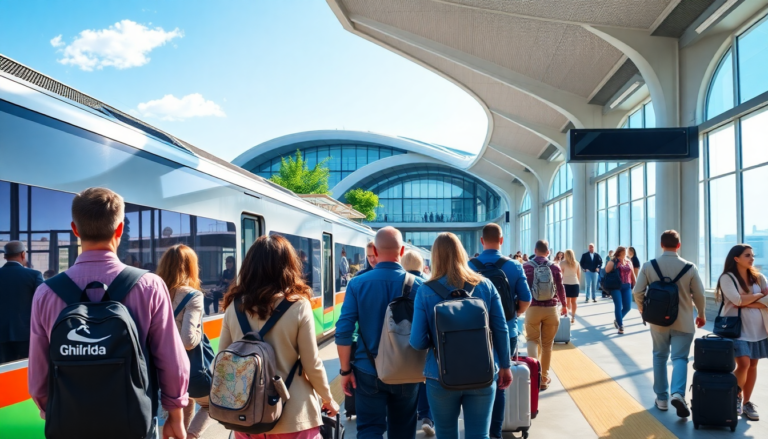Argomenti trattati
Imagine standing at the threshold of a new world, where every corner of the travel industry is buzzing with potential. As we step into 2025, the landscape of travel is evolving at an unprecedented pace. Changes in consumer behavior, technological advancements, and evolving global circumstances are shaping how we explore and experience the world. Whether you’re a curious wanderer or a seasoned traveler, understanding these trends will make your next journey all the more enriching.
The changing dynamics of travel preference
As many know, travel preferences are not static; they shift with time, influenced by various factors. In recent years, there has been a noticeable tilt towards sustainable and responsible tourism. More travelers are prioritizing experiences that honor local cultures and reduce environmental footprints. Personally, I believe this shift isn’t just a trend but a necessary evolution—after all, we only have one planet to explore! This growing consciousness among travelers reflects a broader societal push towards sustainability. Travelers now seek accommodations that are eco-friendly, tours that support local economies, and activities that promote cultural exchange.
Technology’s role in shaping travel
Technology has permeated our lives, and its influence on travel is undeniably profound. From booking flights to navigating new cities, tech has streamlined processes that once felt cumbersome. The rise of mobile apps has made it easier than ever to access real-time information, whether it’s checking flight statuses or discovering hidden gems in a new city. Yet, it’s not just about convenience; technology also enhances the travel experience. Virtual reality previews before trips, AI-driven recommendations for personalized itineraries, and contactless experiences are just a few examples of how tech is reshaping our journeys. I remember my last trip when I used an app to interact with local guides, providing me insights that guidebooks simply couldn’t match.
Emerging destinations that are gaining traction
While classic destinations like Paris and New York will always have a special place in our hearts, travelers are increasingly seeking out lesser-known spots. Places like Tbilisi, Georgia, are becoming hotspots for adventurous travelers looking for authentic experiences without the crowds. There’s something magical about discovering a destination that hasn’t yet been saturated with tourists. It’s as if you’ve stumbled upon a well-kept secret. The allure of these hidden gems lies in their unique culture, stunning landscapes, and the opportunity to connect with locals on a deeper level. Plus, these destinations often come with a more affordable price tag, making them ideal for budget-conscious wanderers.
Health and safety reshaping travel policies
Let’s face it: the pandemic changed everything. Health and safety have become paramount considerations for travelers. Many are now more cautious about where they stay, how they travel, and the activities they engage in. Increased sanitation measures and flexible booking policies have become standard practice, ensuring that travelers feel safe and supported. In my view, this heightened awareness of health and safety is likely to remain a priority even as we move forward. As recent studies have shown, travelers will continue to favor destinations that prioritize their well-being.
The future of travel: hybrid experiences
As the world continues to adapt, hybrid travel experiences are emerging as a compelling trend. This concept combines the best of both worlds: in-person and virtual experiences. Imagine attending a cooking class in Italy while sitting comfortably in your living room or exploring the streets of Tokyo through a VR headset before planning your actual visit. These hybrid experiences not only broaden access to travel but also allow for deeper engagement with cultures from afar. It’s a fascinating way to test the waters before fully immersing oneself in a new environment. The future, it seems, is about blending digital conveniences with the richness of real-world experiences.

